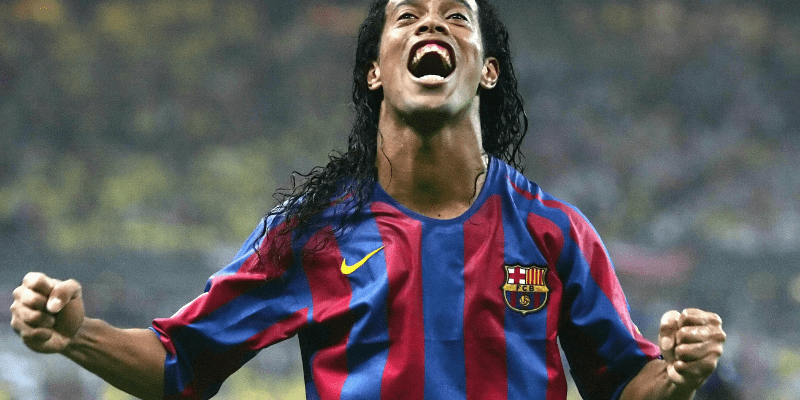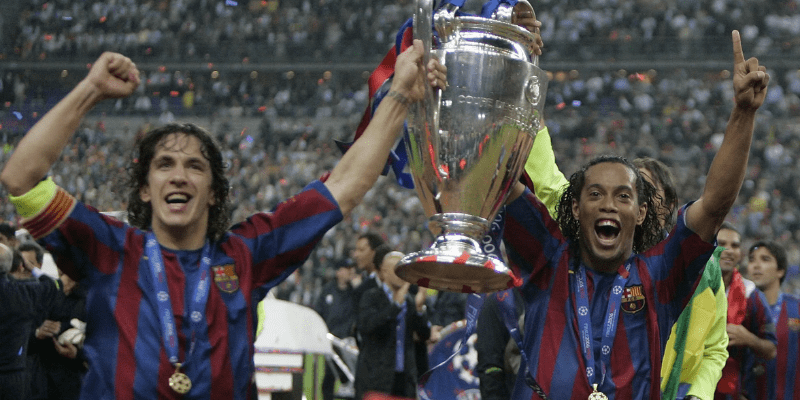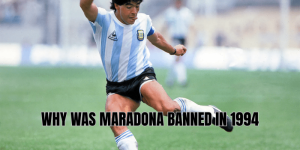Ronaldinho’s life is a tapestry of magic on the pitch, joyous celebrations, and occasionally, darker chapters off it. Among those chapters is the startling moment when Brazil’s beloved “Gaucho” found himself behind bars — a twist that seems almost unimaginable for a football legend of his acclaim. In this article, TigerKick will take you through the surprising saga of how Ronaldinho went to jail, unraveling the legal web, the prison drama, and what followed after.
The Arrest: From Charity Event to Police Custody

In March 2020, Ronaldinho and his brother, Roberto de Assis Moreira, traveled to Paraguay for what was supposed to be a promotional and charitable trip. They were invited to events tied to underprivileged communities, book launches, and media appearances. But upon arrival, things turned chaotic. Paraguayan immigration officials discovered that the passports used by both men were falsified. They were promptly detained in Asunción.
Authorities alleged that the passports bore Ronaldinho’s name and identity as Paraguayan nationals — a claim entirely inconsistent with the reality of his Brazilian citizenship. He and his brother denied any wrongdoing, insisting they were deceived by third parties who claimed the documents were legitimate.
Investigators quickly tied the case to a network involving a Brazilian businessman named Wilmondes Sousa Lira, who was already under detention. Ronaldo’s legal team asserted that the passports had been given as a gift by event organizers, supposedly to smooth logistical processes — though this defense would not spare Ronaldinho.
Charges, Custody, and House Arrest

It became clear that Ronaldinho and his brother would not have an easy route out. Prosecutors charged them with possession and use of false public documents — a serious offense under Paraguayan law. Initially, they spent 32 days in a maximum-security prison in Asunción.
When a judge authorized bail and approved a shift in legal strategy, both men were relocated to a luxury hotel in Asunción, where they were under house arrest for around four months. nside The Games])
Legal Strategy and Defense
Ronaldinho’s defense argued that he had no intention of committing a crime, and that he had acted in good faith, trusting the documents handed to him. Prosecutors, however, maintained that his brother, Assis, was more deeply involved in orchestrating these documents, and thus bore stronger culpability. ity.
In statements, legal representatives for Ronaldinho asserted that he had been misled and lacked full knowledge of the falsity of the passports — a key point that would influence how severely authorities treated him.
The Prison Futsal Tournament: When Ronaldinho Showed Up Even in Chains

One of the most astonishing chapters of this story is how Ronaldinho turned prison life into a football spectacle. While behind bars, he reportedly joined a futsal tournament with fellow inmates, scoring 5 goals and assisting 6, in a match that ended 11–2. His side won, and the trophy was said to be a roasted pig.
This surreal moment resonated with fans worldwide — the idea that Ronaldinho, as ever, would bring joy and spectacle even to the harsh surroundings of detention. He posed for photos, signed autographs, and behaved with an air of confidence many would say only he could muster.
Plea Deal, Fines, and Release
The Deal That Secured Freedom
In August 2020, after more than five months of detention (jail + house arrest), a Paraguayan judge accepted a plea agreement for Ronaldinho and his brother.
Under the terms:
- Ronaldinho paid a fine of US $90,000, while his brother paid US $110,000.
- Roberto de Assis received a two-year suspended sentence in Paraguay, while Ronaldinho avoided a criminal record there.
- Ronaldinho was free to travel abroad, though he had to notify Paraguayan authorities if he changed his place of residence.
Importantly, the judge did not issue a definitive dismissal of the case — but rather granted a conditional suspension of further procedure given the fines, time served, and what prosecutors described as his lack of dangerousness to society.
Aftermath and Restoration
Once released, Ronaldinho returned to Brazil. The Paraguayan court lifted all precautionary arrest measures, removing legal constraints on his movement.
While many wondered whether this episode would tarnish his legacy, Ronaldinho’s popularity endured. In subsequent years, he openly reflected on the ordeal as a “difficult phase,” but one that reinforced humility and gratitude.
Why This Episode Mattered
Legal Lessons for Football Stars
The case of how Ronaldinho went to jail offers lessons in vigilance. Even superstars with global renown can fall prey to legal pitfalls when navigating international travel, sponsorship obligations, and local regulations. It underscored that intent does not always protect against result-based judicial systems.
Image, Redemption, and Narrative
For many fans, Ronaldinho’s time in Paraguay became part of his legend — a bizarre plot twist that only added layers to his mythos. His willingness to engage in prison football and maintain composure during darker hours reinforced the notion that he was more than a player — a symbol of love for the game.
Legal Outcome vs. Moral Questions
Though legally resolved, the case left open ethical questions: How much responsibility should Ronaldinho bear? Was he truly unaware? Did power and fame help him evade harsher consequences? These unresolved tensions continue to fuel fan debate.
What Happened Next In His Life
After this legal storm, Ronaldinho gradually resumed life in public space. He has been active in football ambassadors’ roles, participated in charity work, and remained a vibrant presence in social media and football culture. The episode is now a vivid footnote in his story — an odd twist in a career filled with breathtaking brilliance, controversies, and resilience.
Conclusion
How Ronaldinho went to jail is not just a sensational headline — it’s a story of underdog drama, legal risk, and human complexity. The Brazilian icon’s detainment in Paraguay was born of falsified documents, shrouded by claims of deception, and resolved through a plea bargain that freed him after months of confinement. In the first sentence of this conclusion: how Ronaldinho went to jail remains a reminder that even legends are bound by law.
If you want more on off-field scandals, deep dives into players’ legal battles, or how football stars navigate crises, let TigerKick guide you. Don’t forget to check our other articles on player biographies, controversy timelines, and legal case files — your next deep read is just a click away.






